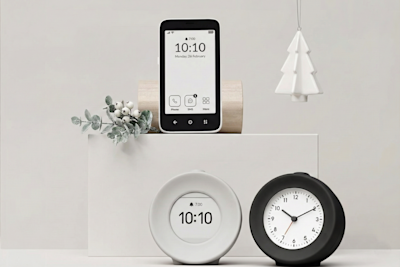
5 Ways You Can Lead a More Eco-Friendly Life
Long gone are the days when being eco-friendly is seen solely as an expensive or unobtainable lifestyle decision. With NGOs and scientists ringing alarm bells, becoming more sustainable in our day-to-day lives has now become a true necessity.
If anything, the 2010s should be remembered as the decade we finally took effective steps to save the environment. What does it actually mean to lead an eco-friendly life? In a highly industrialised society, isn’t it just one of those ‘easier-said-than-done’ situations?
While the popular buzzword, seen anywhere from Instagram to supermarket shelves, has many facets, there are several steps we can all take to reduce our carbon footprint.
Without further ado, let’s take a closer look at our daily activities.
Ripped cardboard boxes with 'reuse reduce' text printed on it
1. Look into the products you use.
While shopping in a crowded supermarket is never a walk in the park, it’s worth spending a couple of extra minutes to carefully read the labels. Chances are, if a company had turned to a more ecological approach, they’ll want the sustainable folks out there to know.
If you’re willing to go the extra mile, go online and read what the company’s website and independent NGOs have to share on the production process. Needless to say, it would be ideal if the brand was evaluated positively for use of recycled materials or sustainably grown ingredients.
There are plenty of shops that provide packaging free alternatives. Companies such as Lush have 'Naked' or 'Zero Waste' products you can use to keep yourself and your family clean without the plastic waste. There are also alternatives to wasteful products such as cotton buds, LastSwab is a great option! Remember, there's no Planet B!
Naturally, it’s not just the groceries we purchase that matters. In the ‘Home’ department keep a radar out for eco-friendly cleaning agents. If you opt out of chemical-stacked detergents, not only will you reduce the amount of harmful ingredients flushed down the drain. You’ll also clean your home surfaces with safe, gentle products you won’t need to worry about exposing yourself, your children or your pets to.
The same applies to choosing food and hygiene products for your pets. For instance, if you’re a cat owner, imagine how many pounds of artificial cat litter you’ll save the environment from, if you switch to a biodegradable alternative. All in all, seemingly small consumer decisions make a significant difference!
2. Ditch your harmful home maintenance habits.
Making sure you manage your habits around the house is another effective way of decreasing your ecological footprint. Here are several ideas you and your family can implement instantly:
use less running water and switch on the eco-friendly setting of your dishwasher and washing machine,
if you have an uninhabited room or floor in your house, turn off its heating,
if you live in a warm climate, plant trees or vines around sun-facing windows for shade (you’ll need less AC in the summer),
if you don’t own a backyard, engage in local tree planting events to help cleanse the air we breathe (head over to One Tree Planted for inspiration),
if you own a chimney heating system, choose the most eco-friendly materials (and help fight smog).
3. Repair, don’t replace.
Every now and then, replacing our favourite, worn-out garments is inevitable. Still, you might want to rethink what your perception of ‘worn-out’ is.
Before the rise of cheap fashion chain stores, discarding clothing was a measure of last resort. If your heels are ruined from walking on an uneven pavement, if your jeans are too wide, or your favourite sneakers are ten shades darker than their original color, you might want to reconsider placing them in the bin.
Check some of the highly popular DIY threads on Pinterest or look for a tailor or shoemaker in your area. You might be able to enjoy your items a little longer, at a very affordable cost.
4. Extend electronics and tech life.
As is the case with fashion items, before you decide to bid farewell to your kitchen or laundry equipment, check whether their condition is truly fatal. It’s quite possible you’ll be able to extend their service life with only a fraction of the cost of a new item.
What about new personal tech?
With smartphone premieres one after another, you may consider replacing your phone a year or two after purchase. Frankly, while resisting the urge to buy equipment stacked with the coolest new features can feel quite challenging, it is also especially rewarding.
Firstly, let’s consider one of the most common issues avid smartphone users report – poor time management skills and too much screen time. At Mudita, we believe great things happen when we are fully present – both in our professional and private lives. To put things simply, we can enjoy a more balanced, healthier lifestyle if our phones don’t sabotage other daily activities.
Secondly, when you hang onto your old phone, you show that you stand for ethical, environmentally friendly production practices. Not all of us realize that the process of producing a new smartphone comes at a significant cost for both workers and nature.
Some scientists even claim that electronics and the coal industry are equally responsible for global warming!
Certain mineral elements, such as hand-dug cobalt, are required for the production of lithium-ion batteries. When we choose to buy the newest smartphone or laptop, we increase demand for items that come at much sacrifice. Hence, it’s a good idea to use the electronics we have for as long as they’re not obsolete.
5. Going out for a walk? Carry a spare trash bag.
Despite global educational efforts, a lot of people still harm the environment with their irresponsible behaviour. If you’re planning to go for a longer hike, or even a walk to your nearby park, take a trash bag and a pair of plastic gloves. It’s sad to see garbage lying around out in nature but through cleaning what others have thoughtlessly discarded, you contribute to a safer home for local fauna and flora.
There is also biodegradable packaging available as an alternative to the obvious choices such as cardboard, paper etc. Polyair™ is a good example as it's a 'bio-based carbon neutral polythene, made from sugar cane and 100% recyclable' (Polythene UK).
What are your own experiences with shifting to an eco-friendly mindset? What are some tips you can share on creating a sustainable household or teaching children to respect the environment? We’d love to hear from you in the comments, on social media, or via email: hello@mudita.com! If you enjoyed this article, you might also like our blog post 'Healthy Body and Mind in a Digital Era'.
Please feel free to get in touch via social media (send us some photos or videos too), you can find us on Facebook, Twitter and Instagram, let’s connect! To learn more about Mudita, take a look at our website and our other posts.
If you enjoyed reading this article, please share and recommend it!
Related stories

Why Mindful Tech Presents are the Best Gifts for Friends & Family
Why mindful tech may be the most thoughtful gift you can give your family. Less distraction, more presence, and healthier relationships with technology.

Why Disconnection Has Become a Modern Luxury
The world we live in demands constant availability. That’s why true offline time has become rare and very valuable.

How Mudita Kompakt Enhances Your Vacation
Mudita Kompakt delivers offline navigation, superb battery life, and zero social media. It's perfect for travelers seeking authentic vacation experiences.
If you'd like to receive the best stories from our blog, keep up to date with our progress and get notified about our product releases and special discounts.